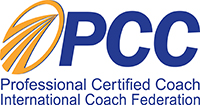Inevitably, there are moments in leadership and life where we get triggered.
When there’s a conflict, you might become scared and anxious.
If someone questions your decisions, perhaps you get angry and resentful.
Or when a colleague is emotional, maybe you feel frozen or numb.
Whatever the context, we all come across situations where we get triggered. In these moments we are reacting without awareness in a disproportionate way to the situation at hand. We’re not capable of noticing or enacting what the moment is calling for. In fact, when we’re triggered, we are not responding to the moment at all. Instead we’re reacting impulsively based on the patterns of our past.
What can we do in these situations? We can take responsibility.
Responsibility is often associated with weight, burden, and taking the blame.
But as has been often pointed out elsewhere, perhaps a more helpful definition is that responsibility is the capacity of being able to respond. It is being response-able to what the moment is calling for.
The first step of being responsible in this sense is to recognize when you are getting triggered. You notice that you are reacting disproportionately, and then, if possible, you take a breath and respond in the most appropriate way you can.
But—and here is the crucial part—responsibility doesn’t end here. Responsible leaders not only notice the moments when they get triggered, but they then consciously explore those triggers later on.
When an internal or emotional difficulty shows up, they take note. Then they take it to a coach, mentor, or friend. They get under the skin of their experience in the presenting situation, and they find the underlying pattern that has been frozen in time, often for decades or longer. With compassion, they see what their old patterns have been trying to take care of, all the while respecting the intelligence of their learned strategies. They give themselves permission to feel the entirety of their stuck emotional experience. They then complete what was incomplete, allowing them to be fully present with what is here right now.
By working through their triggers, responsible leaders develop the ability to respond to what life brings them with awareness, range, and choice. Space opens up for more options in their responses to complex situations. Greater freedom emerges.
Responsible leaders do not resist moments where they get triggered. They are able to respond to these challenging moments by using them as fuel for their own development.
Indeed, responsible leaders are eternally grateful for their triggers. They see them as calling cards, signs that point them toward their next step of development. Rather than trying to push them away or blame themselves for their faults, they embrace each trigger as a gift that shows them the next step on their path.
They realize that their inner obstacles are not in the way—they are the way.
What’s more, they believe that it is their ethical responsibility to address the triggers they come across inside. They know that if they don’t acknowledge what they see, then they are preventing their own and others’ possibility for growth and flourishing. By ignoring their own triggers, they are inflicting future hurt upon others and themselves.
When leaders adopt this stance of total responsibility, their world starts changing. They realize that they don’t have to fight against others or themselves all the time. They get on their own team. Of course, challenges and difficulties will arise. But they recognize that their internal challenges are not flaws to be resisted. They are opportunities to be embraced.
In doing so, a responsible leader sheds light upon what was previously dark. What was hidden in unconsciousness now comes into the light.
According to psychologist Carl Jung, the human being’s task is “to become conscious of the contents that press upward from the unconscious … to kindle a light in the darkness of mere being.”
As he further points out: “Until you make the unconscious conscious, it will direct your life and you will call it fate.”
By facing our triggers, we shed light upon what was previously dark. We make the implicit explicit and the unconscious conscious. In this expansion of our conscious world, we give ourselves the opportunity to lead and live with more choice, possibility, and freedom.
The alternative? A future that is nothing but a repetition of the patterns of the past.
A responsible leader does not settle for such a repetitive fate.
A responsible leader heeds the call of the future, by meeting and resolving the triggered patterns of the past, here and now.
